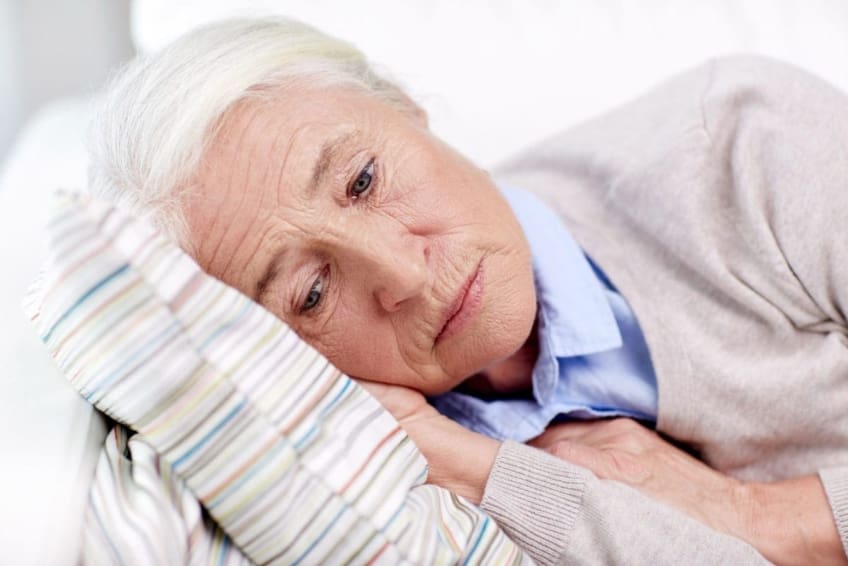
What is depression?
When doctors talk about depression, they mean the medical illness called major depression. Someone who has major depression has symptoms nearly every day, all day, for 2 weeks or longer. These symptoms can include:
- Feeling sad or numb
- Crying easily or for no reason
- Feeling slowed down
- Feeling restless and irritable
- Feeling worthless or guilty
- Trouble remembering, focusing, or making decisions
- Headaches, backaches, or digestive problems
- Unplanned weight loss or gain
- Sleeping too much or having problems sleeping
- Feeling tired all the time
- No interest or pleasure in things you used to enjoy, including sex
- Thoughts about death or suicide
There is a minor form of depression that causes less severe symptoms. Both have the same causes and treatment. An older person who has depression may feel confused or have trouble understanding simple requests.
What is Alzheimer’s disease?
Alzheimer’s disease is the most common type of dementia. Dementia is a group of symptoms caused by damage to brain cells. This can happen because of a tumor, head injury, stroke or disease. Alzheimer’s disease makes it hard for people to remember, learn, and communicate. These changes eventually make it hard for people to care for themselves. It may also cause changes in mood and personality.
Depression is very common among people who have Alzheimer’s disease. In many cases, they become depressed when they realize that their memory and ability to function are getting worse. Together, depression and Alzheimer’s disease can cause other symptoms. They may not want to go places or see people anymore. Their outlook and quality of life can suffer.
Path to improved health
From the outside looking in, it may be difficult to know if your family member is depressed. You can look for some of the typical signs of depression. Your loved one may become angry and agitated or lost and confused. They may refuse help with personal care, such as getting dressed or taking medicines.
Alzheimer’s disease and depression have many symptoms that are alike. It can be hard to tell the difference between them. If you think that depression is a problem for your loved one who has Alzheimer’s disease, talk to their doctor.
Things to consider
There are many things you can do to help someone who has Alzheimer’s disease and depression:
- Create a pleasant environment. Include people and things that they are familiar with. This can brighten their spirit and help soothe any fear or anxiety.
- Set realistic expectations of what they can do. Help them with tasks they can’t do alone. Do not expect so much that they become frustrated or upset.
- Let them help with simple, enjoyable tasks. These could be preparing meals, gardening, or doing crafts.
- Avoid loud noises, crowded places, or overstimulation. This may cause them to become anxious or act out.
- Be positive. Frequent praise will help them—and you—feel better.
As the caregiver of a person who has Alzheimer’s disease, you must also take care of yourself. If you become too tired and frustrated, you will be less able to help. Ask for help from family, friends, and local community organizations. Respite care may be available from your local senior citizens’ group or a social services agency. This is short-term care that is given to a patient to provide relief for the caregiver. Look for or ask your doctor about caregiver support groups.
Other people who are dealing with the same problems may have good ideas on how to cope. Adult day care centers may be helpful. They can give your family member a consistent environment and a chance to socialize. Most senior living facilities have programs specific for people who have Alzheimer’s disease.
When to see the doctor
Contact your doctor if you recognize Alzheimer’s disease and/or depression symptoms in yourself or a loved one. The American Academy of Family Physicians (AAFP) recommends that adults be screened for depression.
The doctor may prescribe medicine to treat some symptoms. Antidepressant medicines can be helpful. These medicines help improve emotional and mental symptoms. They also can help with eating and/or sleeping problems. Antidepressant medicines are not habit-forming.
Questions to ask your doctor
- Do depression and Alzheimer’s disease run in families? Am I at risk?
- What types of medicines treat depression and Alzheimer’s disease? Are there any side effects?
- Will depression go away?
- Are there any lifestyle changes that help improve the symptoms?
- Can you recommend a support group for people who have these conditions and their caregivers?
Resources
U.S. Department of Health and Human Services: Eldercare Locator
![]()
Copyright © American Academy of Family Physicians
This information provides a general overview and may not apply to everyone. Talk to your family doctor to find out if this information applies to you and to get more information on this subject.







